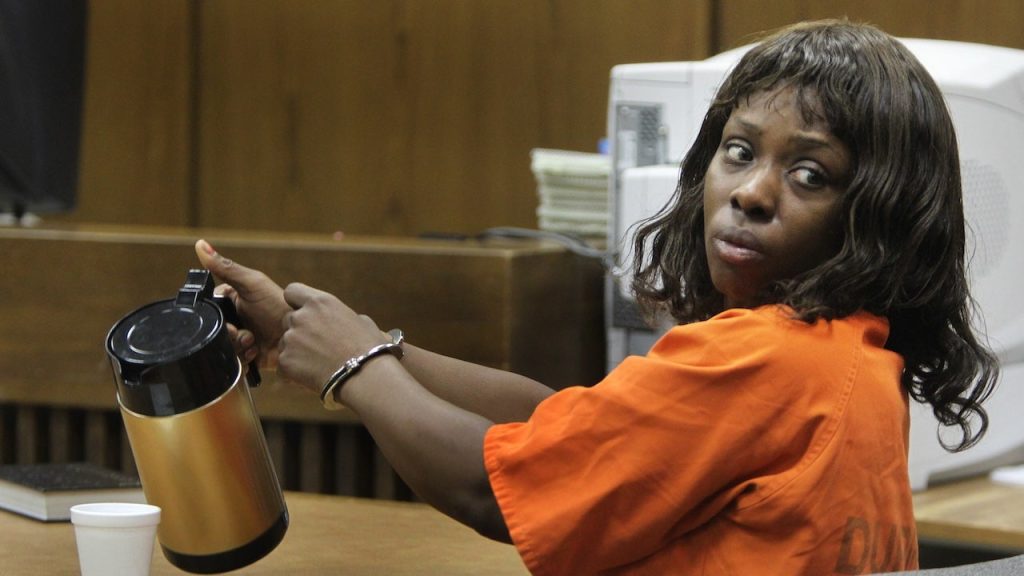The Duke lacrosse case, a saga of accusations, controversy, and ultimately exoneration, took a dramatic turn in 2023 when Crystal Mangum, the woman at the center of the storm, confessed to fabricating the rape allegations that had rocked the nation nearly two decades prior. In an interview with independent media outlet “Let’s Talk With Kat,” Mangum admitted that she had falsely accused three Duke lacrosse players of raping her during a team party in 2006, a lie that ignited a firestorm of racial tension and media scrutiny. Motivated by a desire for validation and attention, she tragically set in motion a chain of events that irrevocably altered the lives of the accused players, their families, and the Duke University community.
Mangum’s false accusations against David Evans, Collin Finnerty, and Reade Seligmann sparked a national debate on race, class, and the presumption of innocence. The players, white and affluent, were immediately cast as villains in a narrative that pitted them against Mangum, a young Black woman struggling with her own personal demons. The media frenzy surrounding the case amplified pre-existing societal biases and fueled a rush to judgment, with many assuming the players’ guilt before any evidence had been presented. The case became a symbol of racial injustice in the eyes of some, while others viewed it as an example of false accusations and the potential for the legal system to be manipulated.
The fallout from Mangum’s lies was devastating. The accused players faced intense public scrutiny, their reputations tarnished and their futures uncertain. The Duke lacrosse team’s season was disrupted, games were canceled, and the university itself grappled with the reputational damage caused by the allegations. The case also exposed deep divisions within the Durham community, highlighting racial and socioeconomic disparities that had long simmered beneath the surface. Mike Nifong, the Durham County district attorney who aggressively pursued the case, fueled the flames of controversy with his inflammatory statements and insistence on the players’ guilt, despite mounting evidence to the contrary.
The truth eventually emerged, albeit slowly and painfully. DNA evidence exonerated the players, revealing that none of their DNA was found on Mangum. Further investigation revealed inconsistencies and contradictions in Mangum’s story, ultimately leading to the dismissal of all charges against the players. Nifong’s misconduct in handling the case, including withholding exculpatory evidence, resulted in his disbarment and a criminal contempt conviction. The players, finally cleared of all wrongdoing, attempted to rebuild their lives and reputations, but the scars of the ordeal remained.
Mangum’s confession in 2023, while offering a degree of closure, could not fully undo the damage she had wrought. Her admission that she had lied, driven by a need for attention and validation rather than a genuine belief in her accusations, provided a stark reminder of the fragility of truth and the potential for false accusations to ruin lives. While she expressed remorse for her actions and the pain she had caused, her words rang hollow for many who had been deeply affected by the case. The legal system, while ultimately exonerating the innocent, had been manipulated and exploited, leaving lingering questions about its ability to effectively handle cases involving complex social and racial dynamics.
The Duke lacrosse case serves as a cautionary tale about the dangers of rushing to judgment, the power of media narratives, and the importance of due process. It highlights the need for a criminal justice system that is both vigilant in pursuing justice and equally committed to protecting the rights of the accused. The case also underscores the insidious nature of prejudice and the ways in which it can distort perceptions and influence outcomes. While the players were eventually cleared, the case left an indelible mark on their lives, the Duke community, and the national discourse on race, class, and justice. Mangum’s confession, though belated, offers a glimmer of hope that lessons can be learned and that future injustices can be prevented.










